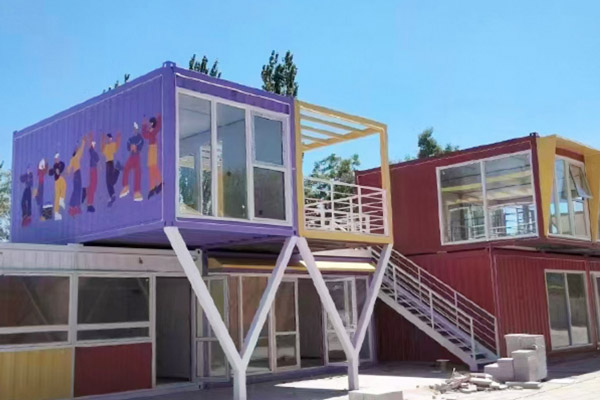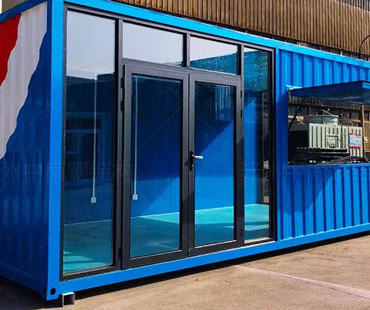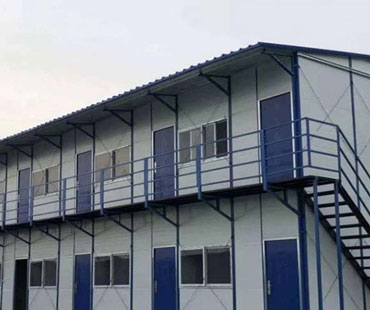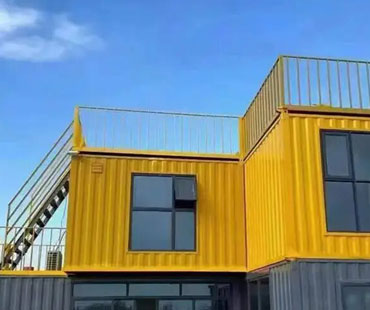In an era marked by rapid urbanization and environmental challenges, the quest for sustainable living solutions has never been more urgent. One innovative approach gaining traction in the housing industry is expandable house technology. These adaptable homes not only cater to the evolving needs of modern families but also align with eco-friendly principles, offering numerous environmental benefits. In this article, we will explore the key eco-friendly advantages of expandable house technology and how it contributes to a more sustainable future.
1.Resource Efficiency and Waste Reduction
Traditional construction methods often lead to significant waste, both in terms of materials and energy. Expandable houses are designed with efficiency in mind, utilizing modular construction techniques that minimize leftover materials. By employing pre-fabricated components, builders can reduce waste during the construction process. Furthermore, these homes can be expanded or altered without the need for extensive renovations or new builds, thereby conserving resources and reducing the carbon footprint associated with traditional housing development.
2.Adaptability to Changing Needs
One of the most remarkable features of expandable houses is their ability to adapt to the changing needs of occupants. As families grow or downsize, the house can be expanded or reconfigured to accommodate these changes. This adaptability extends the lifespan of the home, reducing the need for new construction and the associated environmental impact. For instance, instead of moving to a larger home when a family expands, they can simply add additional modules to their existing structure, thereby minimizing disruption to the environment.
3.Energy Efficiency and Renewable Integration
Many expandable houses are designed with energy efficiency in mind, incorporating sustainable materials and energy-saving technologies. Features such as high-performance insulation, energy-efficient windows, and solar panels can be integrated into the design, significantly reducing the energy consumption of the home. As the demand for energy-efficient solutions grows, expandable houses offer a viable path toward reducing reliance on fossil fuels and lowering greenhouse gas emissions.

4.Smaller Carbon Footprint
The compact nature of expandable houses often leads to a smaller overall carbon footprint compared to traditional homes. With a focus on minimalism, these structures require less land and fewer resources for construction. This not only preserves natural habitats but also contributes to urban infill, reducing urban sprawl and the environmental degradation associated with it. By promoting higher density living in urban areas, expandable houses help to optimize land use and minimize habitat destruction.
5.Community and Collaboration
Expandable house technology encourages community-oriented living by promoting shared spaces and collaboration among residents. Many designs include communal areas that foster social interaction, reducing the need for expansive private properties. This shift towards community living not only enhances social ties but also leads to a more sustainable lifestyle as resources such as gardens, tools, and communal facilities can be shared, further reducing individual consumption and waste.
6.Economic Sustainability
Investing in expandable house technology is not only an environmentally sound decision but also an economically viable one. These homes often require less upfront investment and lower maintenance costs over time, making them accessible to a broader range of individuals and families. Additionally, the ability to expand the home as needs arise means that homeowners can avoid the financial strain of moving or building entirely new structures, contributing to long-term economic stability.
As the world grapples with the pressing challenges of climate change and resource depletion, expandable house technology emerges as a beacon of hope for sustainable living. By offering a flexible, resource-efficient, and environmentally friendly housing solution, expandable houses not only cater to the dynamic needs of modern families but also promote a more sustainable future. Embracing these innovative homes represents a significant step toward creating resilient communities that thrive in harmony with the environment. As we look ahead, the adoption of expandable house technology could very well redefine the way we think about homeownership and sustainability in the 21st century.


